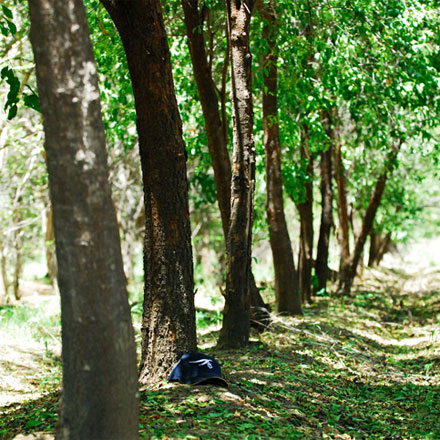
Plantation sandalwood
The West Australian Government was forced to drop the annual harvesting quota of wild sandalwood because it took too long to tackle illegal logging, according to one of the state’s biggest harvesters. Source: ABC News
Environment Minister Albert Jacob announced last month that the harvest quota for wild sandalwood would be cut by 500 tonnes per year to 2500 tonnes.
The quota applies from June 2016 for the next 10 years.
Wescorp Holdings chairman Tim Coakley said extensive illegal harvesting was reported years ago, but the Government had only recently acted to crack down on the practice, which meant stocks had been reduced.
Under a bill currently before Parliament, penalties for illegally harvesting wild sandalwood would be raised from $200 to $200,000 for individuals and $1 million for corporations.
“I think because of that illegal wood that’s gone, I think it’s logical that they reduce [the quota] a bit,” Mr Coakley said.
“It’s taken them over five years to legislate to increase those penalties.
“If that had been done immediately it would be a different situation, that’s the most disappointing bit about that.”
Mr Coakley said illegal harvesting had disrupted the market and sandalwood had become difficult to sell over the past 18 months.
“With the illegal wood that’s been going into the market, the chance of selling logs has been very difficult,” he said. “The market is full of illegal logs and we’ve had to find other markets.
“So as soon as this act gets through and they start penalising some people, hopefully that’ll dry up and things will start to get back to normal.”
The tender process has opened for 10-year contracts for new processing, sales and marketing arrangements for wild sandalwood.
Mr Coakley said Wescorp would be applying for a processing contract but would step back from the marketing side of the industry.
The State Government has been criticised by conservation groups for not setting the quota low enough.
The Wilderness Society referenced a 2012 parliamentary inquiry into the sandalwood industry where it was suggested a sustainable harvesting level of wild sandalwood was 200 tonnes per annum. But Mr Coakley said he was comfortable with where the quota had been set.
“I’m very comfortable that it’s sustainable and really the market will always want wild sandalwood over plantation sandalwood,” he said.
“[Wild sandalwood] needs to be harvested and it’s the only way you can keep regenerating, is by getting that income from the wild, which is going to die and rot anyway.”





